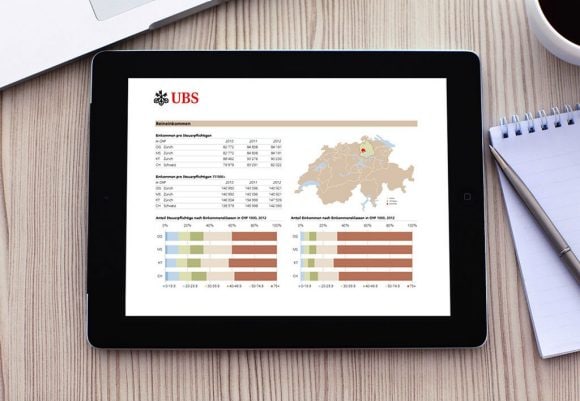We’re here for you
Arrange an appointment for a non-binding consultation or if you have any questions, just give us a call.

![]()
header.search.error
Residential property and taxes
With careful planning, you as a property owner can save on taxes. These can vary depending on the canton and municipality. Find out which tax issues are relevant for residential property and rented properties.
Content:

The change to the system for taxing residential property was approved in the popular vote of 28 September 2025. This abolishes the imputed rental value for primary and secondary residences, severely restricts the deduction for private mortgage interest and eliminates the deduction for maintenance costs. The cantons will now have the option of introducing a cantonal property tax for owner-occupied second homes. The exact date of entry into force is not yet known. Until then, the regulations described in the article regarding tax deductions apply.
If you live in a property yourself, you have various options for claiming tax deductions. Find out about the different ways for property owners to reduce their taxes, and obtain an overview of the biggest savings factors.
You also have to pay tax when selling property. The main tax due is property gains tax. In simple terms, this is a tax that is payable on the difference between the purchase and the sales price. The difference can be reduced by various deductions, such as any value-increasing investments made. In many cantons, this tax is progressive, meaning that the amount of the tax depends on the amount of profit. The holding period also plays a role in calculating tax: The longer you have owned the property, the less tax you will have to pay. But watch out, if you sell your property after a shorter holding period (e.g. within the first five years), you will have to pay a surcharge, which varies depending on the canton.
Property gains tax does not always have to be paid immediately. It can be deferred if you buy a replacement property within a fixed period (usually two years) and live in it yourself. In this case, the tax is due at a later date.

The facts about your preferred municipality
Do you want to understand how property prices or population levels have changed in a municipality? Or how the location is perceived in general? How high are taxes? The UBS municipality guide is free of charge and answers all your questions.
Real estate is also often passed on as part of an inheritance or as a gift. It will then be subject to gift tax or inheritance tax. The value of the property and the degree of kinship play a major role. The higher the amount of the inherited assets or the gift and the more distant the degree of kinship, the higher the taxes payable by the heirs or recipients. These taxes are generally payable in the canton where the property is located.
Whether buying or selling, gifting or inheriting, self-use or renting: Thorough planning is essential for property owners to achieve optimal tax results. Depending on the canton, there are different points to consider regarding taxes and real estate. To find detailed information on property taxes, it is worthwhile to visit the websites of the respective cantonal tax administrations. These often offer comprehensive information and online calculators. Additionally, if you are aware of the tax-saving opportunities, property ownership can provide tax benefits, such as through indirect amortization via the 3rd pillar or early asset transfer.
Arrange an appointment for a non-binding consultation or if you have any questions, just give us a call.
Disclaimer